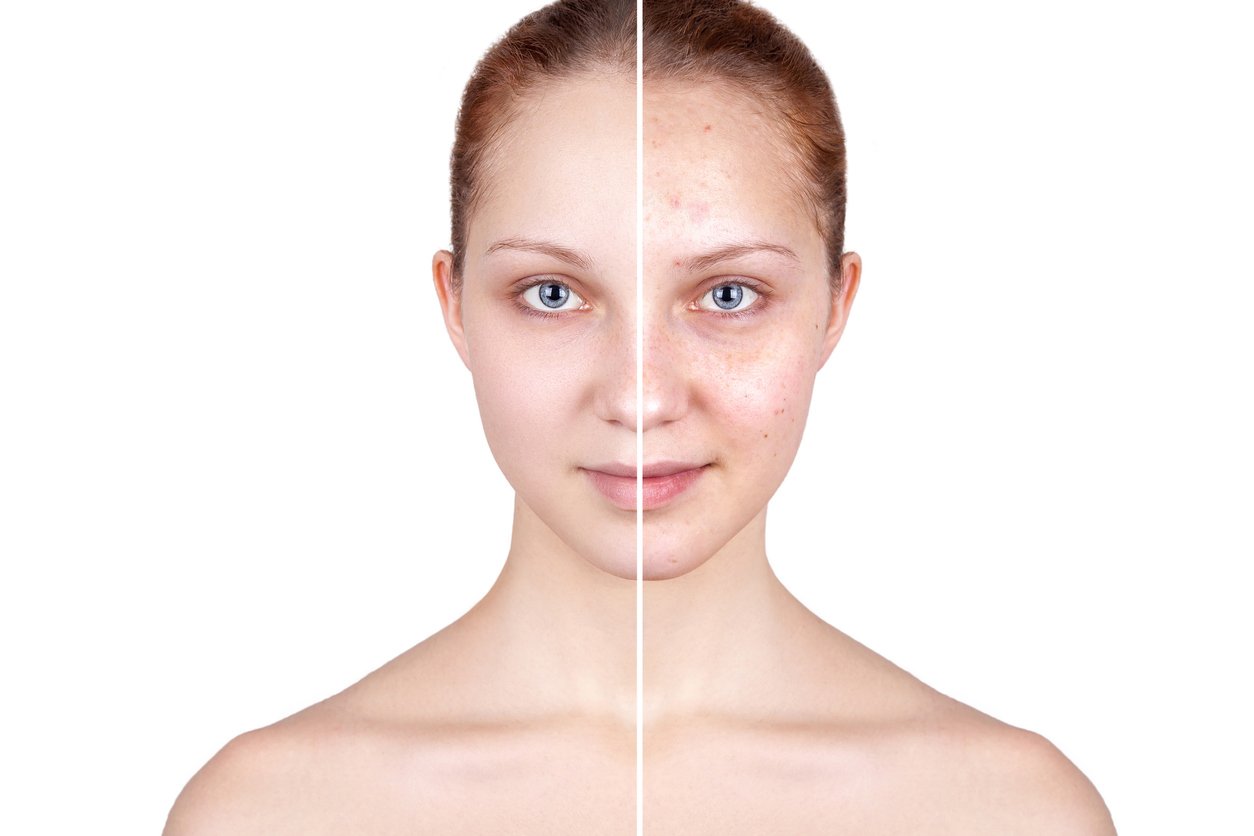DNA Editing to Reverse Aging Is No Longer Just a Theory

For years, the idea of reversing aging through gene editing sounded like something out of a sci-fi novel. But now, scientists are actually making it happen in early-stage lab trials and animal experiments. Using technologies like CRISPR, they’ve begun tweaking genes associated with cellular aging — turning off the ones that promote decay and flipping on those that help with repair and regeneration.
In mice, some of these edits have extended lifespan, improved organ function, and even reversed signs of age-related decline. That’s a huge step toward the possibility of treating aging like a disease — one we can slow down or possibly even “cure.” But while this leap forward is exciting, it’s also raising red flags. Aging isn’t just about cells breaking down. It’s tied to a web of biological systems that evolved together. Changing one thread could unravel others, and scientists are treading carefully because the consequences aren’t fully known yet.
The Catch? DNA Edits Could Spark Cancer or Other Diseases
One of the biggest risks of gene editing to reverse aging is that the very same tweaks that rejuvenate cells might also cause them to grow uncontrollably. In other words, while we may erase wrinkles at the cellular level, we could be paving the way for cancer. That’s because aging is partly the body’s way of keeping damaged or potentially dangerous cells from replicating — a defense mechanism that gene editing might override.
Researchers have seen promising results with edited genes like p53, which play a key role in repairing DNA and preventing tumors. But tampering with this pathway can be a double-edged sword. Revving up cell regeneration might improve vitality in the short term, but if cells lose their ability to self-regulate, the risk of malignancies goes up. It’s a delicate balancing act, and so far, there’s no way to be completely sure that age-reversal edits won’t come with dangerous trade-offs. The body’s aging process, inconvenient as it may be, evolved for a reason.
The Immune System May Not React Kindly to Tweaked Genes
Even if gene editing successfully resets aging mechanisms, the body’s immune system might see the changes as a threat. One of the most concerning potential outcomes is that the immune system could attack edited cells as if they were invaders, leading to chronic inflammation, autoimmune issues, or rejection of the modified tissue altogether.
In anti-aging trials, scientists are discovering that the immune response is often unpredictable. Some patients might tolerate gene-edited cells just fine, while others may experience serious immune flare-ups. This makes the therapy highly individual — and risky. Until we understand how to guide the immune system to accept these changes as natural, large-scale use of age-reversing DNA edits remains a gamble. It’s not just about making people live longer. It’s about making sure they stay healthy — and safe — while doing it.
We Might Extend Life Before We Understand How to Handle It
Let’s say we do crack the code on reversing aging. Suddenly, people can live 120, 150, maybe even 200 years. That sounds incredible — until you consider the societal ripple effects. Our systems aren’t built for lifespans that long. Economies, pensions, healthcare, food production, even mental health support would all have to be reimagined.
Scientists and bioethicists are already debating what happens if anti-aging therapies work before we’re ready. Will only the rich have access, creating a new class divide between the long-lived and the rest? Will overpopulation worsen as people stop dying at a natural rate? Science might solve one problem, aging but unlock a dozen new ones. Life extension is not just a biological challenge. It’s a moral, economic, and logistical one, and right now, science is racing ahead of the conversation.
Editing Aging Genes Might Affect Memory and Identity
Some of the genes linked to aging also play key roles in how our brains function. That means editing them could lead to unintended cognitive consequences. In early trials, there are concerns that while some gene edits may improve memory and clarity in the short term, others might interfere with how memories are stored or recalled.
The brain is incredibly sensitive to even minor genetic tweaks. A slight alteration to neural repair genes or inflammatory pathways could affect mood, perception, or long-term memory. Aging and memory loss often go hand in hand, but erasing aging too aggressively might tamper with the neurological balance that gives us a sense of identity. Longevity, without mental stability, could lead to more people living longer lives inside unfamiliar minds — a disturbing trade-off science isn’t ready to accept.
Genetic Longevity May Not Be Passed to Future Generations
Even if you manage to edit your DNA to slow aging, don’t expect your children to inherit that advantage. Most age-reversal trials are being done on somatic cells — the ones that make up your body but aren’t passed down genetically. Germline editing, which changes DNA in eggs, sperm, or embryos, is far more controversial and heavily restricted in many countries.
This means each person would need their own individual treatment. Humanity wouldn’t “evolve” to live longer through gene editing — it would remain a procedure, not a generational trait. And if the treatment has to be repeated or maintained, that adds cost and complexity. In other words, defeating aging through science might not change evolution’s course at all. It may simply become another kind of healthcare — accessible to some, and inaccessible to others.
Longer Lives May Exacerbate Inequality
If history is any guide, the most cutting-edge treatments usually go to those who can afford them first. Gene editing for anti-aging is no different. As these therapies move from the lab to clinics, they’re likely to be expensive, exclusive, and unevenly distributed — potentially deepening the already wide gap between wealthy and under-resourced populations.
Living longer isn’t just about personal benefit. In a society where only a few can afford longevity, the consequences could affect everything from generational wealth to political power. A world divided between the long-lived elite and the short-lived masses sounds like dystopian fiction, but it’s a very real concern if these technologies aren’t handled with fairness and foresight. Scientific advancement without social planning can deepen the divides it tries to heal.
DNA Changes Could React Differently Over Time
The human body is not static. It evolves with age, environment, and lifestyle — and so do the genes we express. A genetic edit that works well in a 40-year-old might behave very differently in someone who’s 75. And the longer we live, the more time there is for unexpected side effects to emerge.
One of the challenges in anti-aging gene therapy is that we don’t yet know what these edited genes might do decades down the line. A tweak that helps today could interfere with organ function, hormone regulation, or brain chemistry years later. That’s what makes this field so unpredictable. You’re not just editing a moment in your biology — you’re trying to reprogram an entire future. And there’s no reset button if something goes wrong.
Some Edits Might Be Irreversible
Once DNA is changed in your body’s cells, it can’t easily be undone. That’s especially true with gene drive technologies or permanent CRISPR edits, where the goal is to make lasting changes. If something goes wrong — if a gene behaves unpredictably, or has off-target effects — there may be no simple way to reverse it.
This permanence raises ethical and medical concerns. What happens if a therapy works for 95% of patients, but causes major complications in the rest? Are those risks acceptable in the name of progress? And what happens if someone wants to undo their edit but can’t? In the rush to outsmart aging, we may be forgetting that biology doesn’t always follow clean rules. Irreversible interventions could leave people trapped in unintended states of health or decline.
Anti-Aging Edits Might Disrupt Natural Hormone Cycles

Many genes involved in aging also influence hormone regulation — including those tied to metabolism, sleep, fertility, and stress. Editing these genes can have unexpected knock-on effects, creating imbalances that ripple across the body. That’s especially tricky because hormones are part of a dynamic system that constantly adjusts to environment and age.
Some experimental treatments that lengthen telomeres or activate repair enzymes have led to disrupted sleep cycles or erratic energy levels. Others may affect reproductive health or mood. The body’s systems are delicately balanced, and tinkering with the timing of age-related changes might lead to hormonal chaos, especially if the edits affect multiple pathways at once. A longer life is only a gift if the body stays in sync with itself — and right now, that’s a puzzle scientists haven’t solved.
Aging Might Return in Strange New Ways
Reversing aging doesn’t mean eliminating it. It might just shift how it shows up. Instead of gray hair or joint pain, people might experience novel forms of cellular decline, unfamiliar chronic conditions, or age-related syndromes we don’t even have names for yet.
When scientists interfere with natural aging, they may end up suppressing certain symptoms while creating others. The aging process is tied to immune defense, wound healing, and even cancer suppression. Remove it entirely, and the body might develop new vulnerabilities. We might not look older, but aging could still happen under the surface — in silent, unfamiliar ways. That’s the paradox: we could live longer lives without fully knowing what aging will look like in that future.
Changing Your DNA May Change Your Personality
While genes don’t directly control who we are, they do influence mood, motivation, cognition, and emotion. Editing genes to slow aging could unintentionally affect the biochemical processes that shape how we think and feel. This means that anti-aging therapy might subtly, or not-so-subtly, reshape parts of a person’s personality.
For instance, changes to genes that regulate inflammation or neurochemicals might lift fatigue but also increase risk-taking behavior or irritability. Altering metabolism-related genes could affect appetite, reward systems, or even social bonding. These aren’t guaranteed outcomes, but they’re worth considering. When we change how our bodies function, we may also shift how our minds interpret the world — and who we believe ourselves to be.
We Could Become Dependent on Gene Maintenance
One unexpected effect of reversing aging might be that it’s not a one-time fix, but a lifelong commitment. Some gene edits may require ongoing regulation, booster treatments, or compatible therapies to stay effective and safe. That could turn anti-aging into a subscription service — one you can’t afford to miss.
This opens the door to new forms of medical dependency. If you stop treatment or can’t access updates, your body could crash or revert rapidly. A society that normalizes this kind of maintenance would have to reinvent its entire approach to healthcare, insurance, and retirement planning. Living longer would mean planning more — financially, emotionally, and biologically. And not everyone will have equal access to that future.
Editing Aging Might Change How We Value Life Itself

If we start to see aging as optional, how will that affect how we value time, relationships, or even purpose? A longer life could encourage deeper learning, more contribution, and greater reflection but it could also lead to stagnation, boredom, or detachment. Some philosophers argue that mortality gives life urgency and meaning. Without that, we may lose the sense that time matters.
This is the quiet cost that science can’t measure. If human DNA is rewritten to defeat age, we’ll not only change our bodies — we’ll change our culture, priorities, and even what it means to grow. The catch isn’t just biological. It’s existential. And it’s one of the biggest questions humanity may soon have to face.
